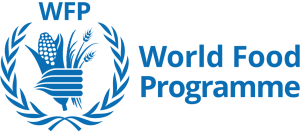Pakistan’s high rates of malnutrition (43.7% stunting, 31.5% underweight and 15.1% wasting) are indicative of an on-going child nutrition crisis. Such levels of malnutrition rank Pakistan the second-highest burden country in the region.
The nutritional situation in Pakistan is a matter of serious concern. Although progress has taken place and the proportion of underweight children under 5 years has declined from 38% to 32% between 2001 and 2011, during the same period stunting has increased from 37% to around 44% and so has wasting, from 13% to 15%.
A quarter of all new-born infants are born with low birth weight, which is unsurprising considering that 18% of women were found underweight. Stunting is impaired physical and mental growth that children experience due to poor nutrition. Children are categorized as stunted if their height-for-age is too low relative to the World Health Organization’s prescribed standards for child growth.
BISP in collaboration of UN-WFP implementing Benazir Nashonuma Program for stunting prevention through SCAP Balochistan in District Kharan and Chagai. The families who are enrolled in BISP program will be further enrolled at facilitation centers to prevent stunting.
